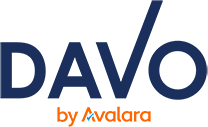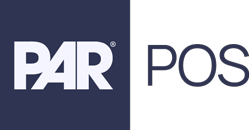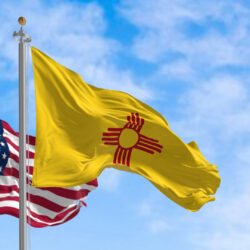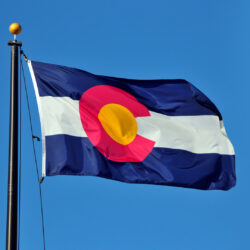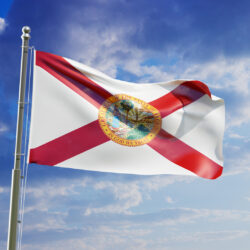Gestionar el impuesto sobre las ventas en Carolina del Norte puede ser complejo para los dueños de negocios en el estado de Tar Heel. Con una tasa estatal base, además de los impuestos condales y locales que varían según la ubicación, cumplir con las normas requiere vigilancia y atención al detalle.
Ya sea que gestione un próspero restaurante en Charlotte, una boutique en Asheville o un negocio de servicios en Raleigh, comprender sus obligaciones fiscales sobre las ventas en Carolina del Norte es fundamental para evitar multas costosas y mantener su negocio funcionando sin problemas. Analicemos los detalles.
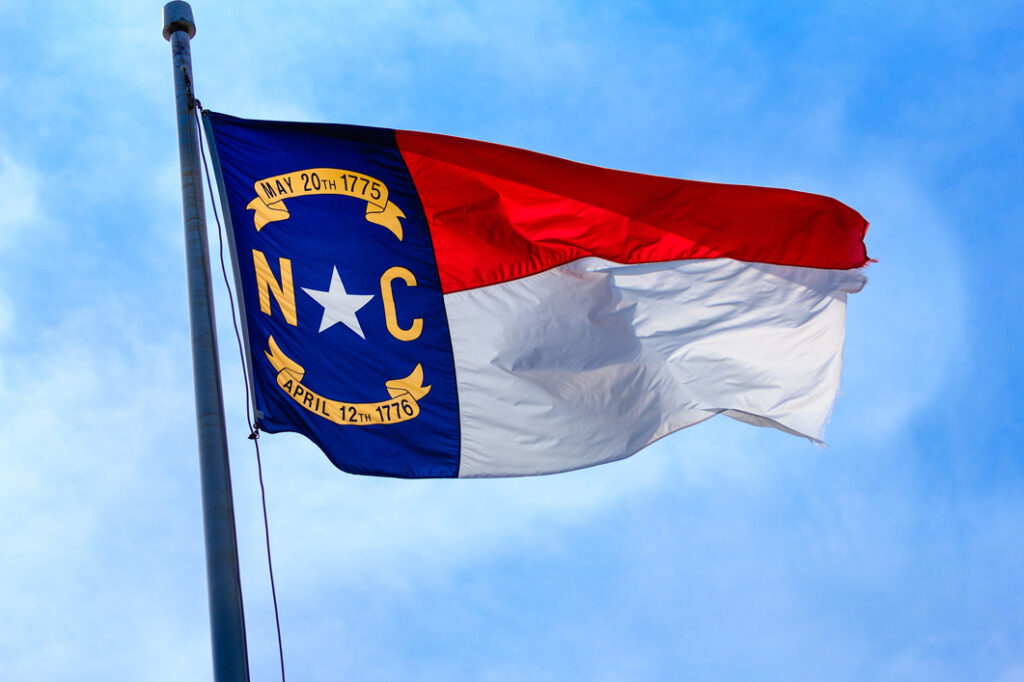
¿Cuánto es el impuesto sobre las ventas en Carolina del Norte?
La tasa del impuesto sobre las ventas del estado de Carolina del Norte es 4.75%, Pero los condados locales añaden su propio impuesto. La tasa combinada que se cobra depende del lugar donde se realiza la venta.
A continuación se muestran algunos ejemplos:
- Charlotte (condado de Mecklenburg): tasa estatal de 4.75% + tasa del condado de 2.50% = 7.25% en total
- Raleigh (Condado de Wake): tasa estatal de 4.75% + tasa del condado de 2.50% = 7.25% en total
- Durham (Condado de Durham): tasa estatal de 4.75% + tasa del condado de 2.75% = 7.50% en total
Dado que las tasas pueden variar según el condado, siempre confirme con el Departamento de Ingresos de Carolina del Norte para asegurarse de que está cobrando el impuesto sobre las ventas correcto.
¿Qué es el impuesto sobre las ventas de Carolina del Norte?
La tasas estatales generales y tasas locales y de tránsito aplicables del impuesto sobre ventas y uso, El impuesto sobre las ventas, comúnmente conocido como impuesto sobre las ventas, grava los bienes vendidos en Carolina del Norte. Se aplica a la mayoría de los bienes muebles tangibles vendidos al por menor, a menos que se aplique una exención específica. Los bienes muebles tangibles se definen como cualquier cosa que se pueda ver, tocar, pesar o medir, como muebles, ropa y aparatos electrónicos. Artículos como el agua, el gas, la electricidad, el vapor y el software preescrito se incluyen en esta categoría.
¿Todos los bienes y servicios están sujetos a impuestos en Carolina del Norte?
No todo lo que se vende en Carolina del Norte está sujeto al impuesto sobre las ventas. Si bien la mayoría de los bienes tangibles están sujetos a impuestos, algunos productos esenciales y ciertos servicios están exentos. Por ejemplo, alimentos como el pan, la leche y las frutas y verduras están exentos del impuesto estatal sobre las ventas, aunque algunos impuestos locales aún podrían aplicarse. Los medicamentos recetados también están exentos del impuesto estatal sobre las ventas.
En cuanto a los servicios, Carolina del Norte adopta un enfoque más selectivo. Algunos servicios están sujetos a impuestos, pero muchos no. Conocer la diferencia es clave para cumplir con las normas.
¿Qué servicios están exentos del impuesto sobre las ventas en Carolina del Norte?
Muchos servicios profesionales y personales están exentos del impuesto sobre las ventas en Carolina del Norte. Algunos ejemplos comunes incluyen:
- Servicios médicos prestados por profesionales autorizados
- Servicios jurídicos y contables
- Servicios de cuidado infantil
- Servicios educativos como tutorías o clases
- Servicios personales como cortes de pelo, manicuras y masajes.
- La mayoría de los servicios que solo implican mano de obra, a menos que impliquen reparación, mantenimiento o instalación de bienes personales tangibles.
Dicho esto, Carolina del Norte grava ciertos servicios, especialmente los relacionados con bienes tangibles (como la reparación de automóviles, la instalación de electrodomésticos o el mantenimiento de equipos). Consulte las directrices más recientes del Departamento de Ingresos de Carolina del Norte para confirmar si un servicio está sujeto a impuestos.
¿Las organizaciones 501(c)(3) están exentas del impuesto sobre las ventas en Carolina del Norte?
En Carolina del Norte, las organizaciones sin fines de lucro 501(c)(3) no están automáticamente exentas del pago del impuesto sobre las ventas en sus compras. Por lo general, deben pagar el impuesto sobre las ventas al momento de la compra, al igual que cualquier otro comprador. Sin embargo, las organizaciones sin fines de lucro que califican pueden solicitar un reembolso semestral del impuesto sobre las ventas y el uso que hayan pagado en compras elegibles.
Es importante tener en cuenta que esta opción de reembolso no cubre todas las compras. Por ejemplo, los artículos utilizados directamente en actividades comerciales no relacionadas podrían no ser elegibles. Para solicitar un reembolso, las organizaciones sin fines de lucro deben presentar el Formulario E-585, Solicitud de Reembolso de Entidades Gubernamentales y Sin Fines de Lucro, ante el Departamento de Ingresos de Carolina del Norte.
Las organizaciones sin fines de lucro que venden bienes o servicios también podrían tener que recaudar y remitir el impuesto sobre las ventas sobre dichas ventas, a menos que se aplique una exención específica. Consulte siempre el Departamento de Ingresos de Carolina del Norte para obtener la guía más actualizada sobre artículos sujetos a impuestos y exentos. También puede visitar su sitio web. Impuesto general sobre las ventas y el uso Página para revisar el estatuto actual.
¿Cómo calcular el impuesto sobre las ventas en Carolina del Norte?
Calcular el impuesto sobre las ventas en Carolina del Norte implica combinar la tasa estatal de 4.75% con las tasas de transporte público locales y del condado aplicables. La tasa total dependerá de la ubicación de su negocio y del origen de la venta. Por ejemplo, Raleigh (condado de Wake) tiene una tasa combinada de 7.25%, mientras que Charlotte (condado de Mecklenburg) también tiene una tasa de 7.25%, y Durham (condado de Durham) tiene una tasa de 7.5%.
Para calcular:
- Encuentre la tarifa combinada estatal, del condado y local para su área.
- Multiplique su precio de venta total sujeto a impuestos por esa tasa.
- El resultado es el impuesto sobre las ventas que debes cobrarle al cliente.
Confirme siempre la tarifa actual con el Departamento de Ingresos de Carolina del Norte, ya que las tarifas pueden variar según la jurisdicción.
Utilice nuestra calculadora de impuestos sobre las ventas
En lugar de hacer los cálculos usted mismo, utilice nuestro calculadora de impuestos sobre las ventas. Simplemente ingrese el monto de sus ventas y la tasa combinada estatal, del condado y local para la ubicación de su negocio, y la calculadora le dirá instantáneamente cuánto impuesto sobre las ventas cobrar.
¿De qué soy responsable?
Como propietario de un negocio en Carolina del Norte, usted es responsable de recaudar el impuesto sobre las ventas a sus clientes, garantizar el cobro correcto, mantenerlo seguro y remitirlo al estado de forma precisa y puntual. Si bien Carolina del Norte no ofrece descuentos a proveedores por pagos puntuales, otros estados sí los ofrecen a las empresas que declaran y pagan sus impuestos sobre las ventas a tiempo. Puede consultar nuestra guía completa sobre los estados que sí los ofrecen. descuentos en impuestos sobre las ventas Para más detalles.
¿Cobro impuestos sobre las ventas por el envío en Carolina del Norte?
Sí. En Carolina del Norte, el impuesto sobre las ventas generalmente se aplica a los gastos de envío y entrega si la venta en sí está sujeta a impuestos. Esto significa que, si vende productos sujetos a impuestos, cualquier cargo por manipulación, envío o entrega que cobre a su cliente también estará sujeto al impuesto sobre las ventas. Sin embargo, si los artículos que se envían están exentos de impuestos, los gastos de envío también lo estarán.
¿Cómo registrarse para el impuesto sobre las ventas en Carolina del Norte?
Si planea vender bienes o servicios gravables en Carolina del Norte, debe registrar una cuenta de impuestos sobre las ventas y el uso en el Departamento de Ingresos de Carolina del Norte (NCDOR). Puede registrarse en línea o por correo, y no tiene costo. Si se registra en línea, generalmente recibirá su número de cuenta al instante y su certificado de registro le llegará por correo en aproximadamente 10 días hábiles. Si se registra por correo, recibirá los detalles de su cuenta y el certificado en aproximadamente cuatro semanas. Tenga cuidado con los sitios web de terceros que afirman gestionar el registro por usted. El NCDOR no colabora con ningún servicio de registro de terceros; regístrese siempre directamente a través del NCDOR.
Al registrarse, necesitará la siguiente información:
- Número de Seguro Social (SSN) o Número de Identificación de Empleador Federal (FEIN).
- Su nombre comercial, dirección y número de teléfono.
- Detalles sobre su negocio, incluida la fecha de inicio y el tipo de negocio.
Si corresponde, también deberá incluir:
- Un número del Secretario de Estado (SOS) de Carolina del Norte.
- Información del socio comercial o persona responsable (nombre, cargo, SSN, dirección).
Una vez registrado, recibirá un ID de cuenta de impuestos sobre las ventas y el uso que le permite recaudar y remitir impuestos sobre las ventas y determinar la frecuencia de su declaración. Visite el sitio web de NCDOR para obtener más información. registro del impuesto sobre las ventas información.
Haga que sus impuestos sobre las ventas sean menos onerosos con DAVO.
¿Cómo presentar el impuesto sobre las ventas en Carolina del Norte?
La mayoría de los negocios en Carolina del Norte declaran sus impuestos sobre las ventas en línea a través del sitio web de NCDOR y completan el formulario E-500. Ciertas situaciones, como la venta de alcohol o productos digitales, pueden requerir un formulario diferente. Para presentar su declaración, necesitará su número de cuenta de NCDOR de 9 dígitos. Incluso si no realizó ninguna venta durante el período, deberá presentarla. La frecuencia de su declaración (mensual, trimestral o anual) se determina al registrarse.
Si necesita presentar su declaración en papel, comuníquese directamente con NCDOR al 877-252-3052 para obtener ayuda. DAVO by Avalara gestiona la declaración automáticamente, lo que garantiza que su declaración de impuestos sobre las ventas se envíe con precisión y puntualidad., garantizado,. Desde la conexión con su punto de venta hasta la preparación y el envío de devoluciones, DAVO elimina el estrés de recordar plazos y gestionar formularios, lo que le permite dedicar más tiempo al crecimiento de su negocio.
¿Cuándo vence el pago del impuesto sobre las ventas en Carolina del Norte?
Carolina del Norte establece plazos para la declaración del impuesto sobre las ventas según la frecuencia de presentación. Quienes presentan la declaración mensualmente, que es el método más común, deben presentarla antes del día 20 del mes siguiente al período de declaración. Quienes presentan la declaración trimestralmente deben presentar las declaraciones antes del último día de enero, abril, julio y octubre correspondientes al trimestre anterior. Incluso si su empresa no tuvo ventas gravables durante ese período, debe presentarla.
Con DAVO, no tiene que preocuparse por cumplir con los plazos. Nuestro sistema calcula, recauda y prepara automáticamente su impuesto sobre las ventas, y luego presenta su declaración a tiempo, para que usted pueda concentrarse en administrar su negocio en lugar de preocuparse por las fechas límite.
¿Cómo sé cuánto impuesto sobre las ventas debo cobrar?
Las tasas de impuesto sobre las ventas en Carolina del Norte son una combinación de los impuestos estatales, del condado y municipales. La respuesta definitiva siempre es la tasa de impuesto sobre las ventas publicada en el sitio web del Departamento de Ingresos del Estado de Carolina del Norte. Las tasas publicadas en otros lugares suelen estar desactualizadas y ser incorrectas. Siempre es responsabilidad del comerciante cobrar la tasa correcta de impuesto sobre las ventas.
¿A dónde va el dinero del impuesto sobre las ventas?
El impuesto sobre las ventas recaudado en Carolina del Norte se divide entre los gobiernos estatal y local para financiar los servicios públicos. Estos servicios incluyen educación, servicios sociales, servicios de emergencia, bienestar público e inspecciones de zonificación.
¿Cómo gestiono las ventas exentas de impuestos en Carolina del Norte?
Si vende a organizaciones exentas de impuestos, es su responsabilidad como empresario recopilar y verificar su estado de exención. Solicite siempre un Certificado de Exención válido al comprador y conserve una copia. Si no puede obtener un certificado al momento de la venta, deberá cobrar y remitir el impuesto sobre las ventas para evitar responsabilidades.
Aunque muchas organizaciones 501(c)(3) están exentas, no todas están cubiertas automáticamente. Verifique que el certificado sea válido y que la organización esté reconocida por NCDOR. Mantener registros precisos ayuda a proteger a su empresa de sanciones o intereses si posteriormente se cuestiona una exención.
¿Cuáles son las sanciones por impuestos sobre las ventas si me olvido de pagar?
Omitir un pago o presentar la declaración fuera de plazo puede resultar costoso. Carolina del Norte impone multas e intereses por la presentación y el pago tardíos del impuesto sobre las ventas.
- Multa por presentación tardía: 5% del impuesto adeudado por mes (o fracción de mes), hasta un máximo de 25%.
- Multa por pago tardío: 5% del impuesto adeudado, más intereses. Los intereses se acumulan desde la fecha de vencimiento original hasta que se realiza el pago completo. Las tasas pueden variar, así que consulte siempre el sitio web de NCDOR para obtener la información más reciente. Actualmente, la tasa de interés ronda los 7%.
Mantenerse al día con sus declaraciones y pagos es fundamental para evitar estos costos adicionales. Si tiene una razón válida, puede solicitar una exención de sanciones al Secretario de Ingresos. Tenga en cuenta que hay un plazo límite para presentar esta solicitud, así que visite el sitio web de NCDOR para obtener las políticas y directrices más recientes. exenciones.
Deje que DAVO se encargue de su impuesto sobre las ventas en Carolina del Norte

¿Alguna vez se ha olvidado de pagar el impuesto estatal sobre las ventas de Carolina del Norte? ¿O tiene problemas con las tasas de cada condado? ¿Le preocupa tener suficientes fondos reservados para pagar el impuesto sobre las ventas de Carolina del Norte o se siente abrumado por el papeleo durante la temporada alta?
Si es así, DAVO es para usted. Está diseñado para trabajar con propietarios de negocios físicos en todo el estado de Tar Heel que tienen prioridades más importantes que recaudar, pagar y declarar el impuesto estatal sobre las ventas. DAVO le ayudará a cumplir con sus obligaciones fiscales.
DAVO automatiza el proceso de impuestos sobre las ventas en Carolina del Norte, desde la recaudación diaria hasta la declaración trimestral y los pagos puntuales. Se integra a la perfección con su sistema POS, sin necesidad de trabajo adicional. Y como DAVO le ayuda a garantizar que sus impuestos de Carolina del Norte se paguen a tiempo y en su totalidad, puede centrarse en el crecimiento de su negocio en lugar de preocuparse por el cumplimiento tributario.
Elija su sistema POS para comenzar a utilizar DAVO hoy mismo.
Ayuda en relación con el impuesto sobre las ventas y el uso de Carolina del Norte:
Departamento de Hacienda de Carolina del Norte
(877) 252-3052
